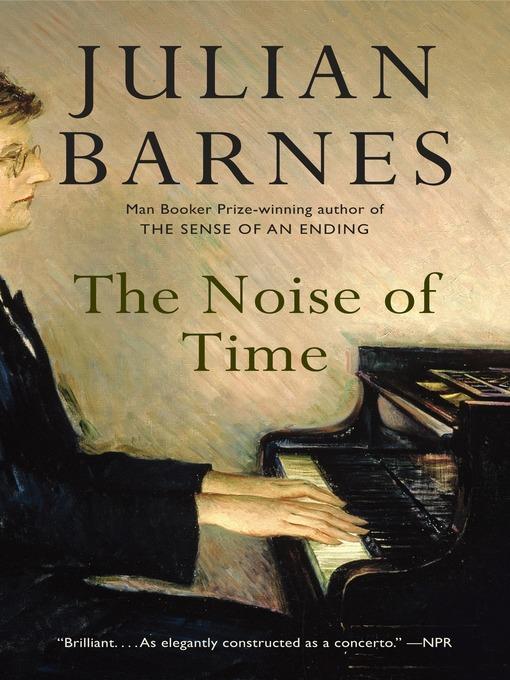
The Noise of Time
A Novel
کتاب های مرتبط
- اطلاعات
- نقد و بررسی
- دیدگاه کاربران
نقد و بررسی

March 14, 2016
Reviewed by Anthony Marra, Dmitry Shostakovich, the renowned Russian
composer and subject of Barnes’s magnificent
biographical novel, purportedly declared near the end of his life, “The majority of my symphonies are tombstones.” The Noise of Time, then, is a journey into the shadows of Shostakovich’s personal cemetery, the Soviet Union at midcentury., We meet Shostakovich in 1936, at the onset of Stalin’s Great Purge, as he stands by the hallway elevator each night, awaiting his imminent arrest. It’s an absurd, desperate attempt to protect to his family by surrendering himself before the security forces reach his apartment. His opera Lady Macbeth of Mtsensk recently received a sharp rebuke in Pravda titled “Muddle Instead of Music,” which may have been written by Stalin himself, because “there were enough grammatical errors to suggest the pen of one whose mistakes could never be corrected.” In Stalin’s Russia, where even the most abstract of the fine arts are potent political expressions, and where one’s worth is determined by one’s work, this sort of criticism can serve as a death sentence., Shostakovich barely avoids arrest, and we catch up with him every 11 or 12 years. In 1949, he returns from a disastrous trip to New York City as a Soviet delegate to the Cultural and Scientific Congress for World Peace. In 1960, he is in the back of a chauffeured car, having committed moral suicide by becoming a party member. From these scenes of transition, the fragmented narrative delves into Shostakovich’s public collusions with and private condemnations of Soviet power. He emerges as a sympathetic, frail, and tragic hero whose self-castigations are far harsher than any judgments the reader will pass., It’s curious that a novel stretching across Shostakovich’s life would largely omit his experiences in the Second World War, particularly his Seventh “Leningrad” Symphony, which must be among the most mythologized concert premieres of the 20th century. But Barnes is more interested in the political than practical realities of composing. By focusing on Shostakovich’s compromises, rather than his compositions, The Noise of Time transcends the singular nature of artistic brilliance to become universal in its exploration of repression and resistance. “He had been as courageous as his nature allowed; but conscience was always there to insist that more courage could have been shown.” This is as close to self-forgiveness as Barnes’s Shostakovich comes. It’s not hard to imagine the sentiment would be shared by anyone who has conceded a portion of his or her soul to totalitarianism in exchange for the right to survive., Novels about artistic achievement rarely do justice to their subjects. What, really, can Irving Stone tell us about Michelangelo’s genius that the Sistine Chapel doesn’t already amply demonstrate? The Noise of Time is that rarity. It is a novel of tremendous grace and power, giving voice to the complex and troubled man whose music outlasted the state that sought to silence him. (May), Anthony Marra is the author of The Tsar of Love and Techno and A Constellation of Vital Phenomena (both from Hogarth).

























دیدگاه کاربران